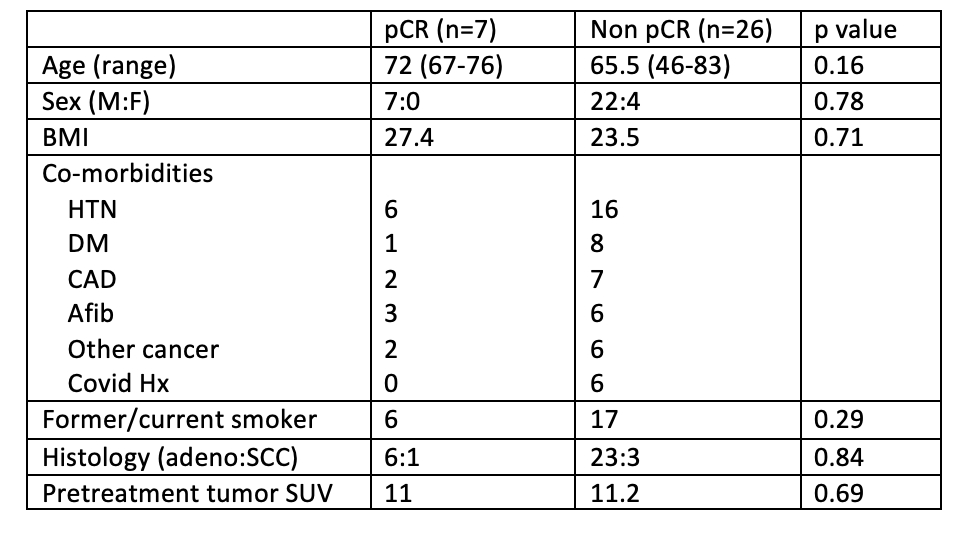Background:
Ongoing clinical trials are exploring the omission of esophagectomy for patients with a clinical complete response following chemotherapy and radiation for esophageal cancer. There is a lack of data on how to predict which patients will have a complete pathologic response based on clinical factors. We hypothesize that a combination of standardized uptake value (SUV) and other patient factors can predict a pathologic complete response.
Methods:
A retrospective review was performed of all patients who underwent an esophagectomy for esophageal cancer from Jan 2022 to Sep 2023. The tumor and patient characteristics were compared between those that did and did not have a pathologic complete response.
Results:
There were 33 patients that met inclusion criteria. There were 29 males and 4 females with a median age of 67 (46-83). The patient and tumor characteristics are compared in the Table based on pathologic response. There were no significant differences between the groups.
Conclusion:
There are no consistent clinical findings that can identify a pathologic complete response. Omitting surgery for those that have a clinical complete response risks the potential of a curative surgery and likely decreases long-term survival. Until more consistent methods are identified, such as circulating tumor DNA, surgery after completion of neoadjuvant chemotherapy and radiation should remain the standard of care for all patients with esophageal cancer.
